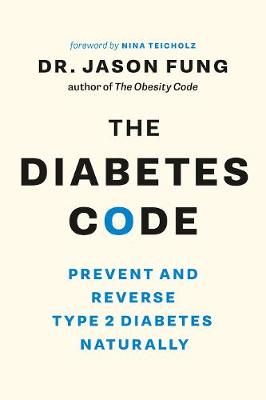WHAT IS KETOSIS?
Ketosis is the metabolic state in which one produces elevated levels of ketone bodies. Ketones are produced by the liver from fats stores during times of fasting, in this case from sugars and carbohydrates.
The human body can use two things for energy – glucose (sugar) and ketones. When you are in ketosis the body is forced to use stored fat as fuel by way of ketones.
SHOULD I CUT MY CALORIES?
If you get your information from food companies, or institutions like Slimming World, or Weight Watchers, then you will end up in a vicious cycle of calorie cutting in order to lose a few pounds. Sadly, the vast majority of people on these programs will never get to where they want to be. The only result is less muscle and bone mass and a higher body fat percentage. Restricting calories can help you lose weight, but won’t necessarily help you lose body fat.
Calories are nothing more than a unit of measurement used to determine the amount of energy we get from food – simple as that. If you have 500kcal worth of broccoli in one hand and 500kcal worth of chocolate in the other, which one is going to make you fat? The chocolate will because it’s loaded with sugar. This makes common sense out of the fact that not all calories are equal. Yet companies like Nestle and Cadbury’s will advertise sweets and chocolate bars that are only 100kcal claiming they’re healthy. Wow! Talk about capitalizing on peoples’ ignorance.
SO SUGAR AND CARBS ARE THE ENEMY?
Calories equal energy. We can only get calories from macronutrients – protein, carbohydrates and fats. Carbohydrates and sugars are one in the same. Carbs are, in fact, just complex chains of sugar molecules. This is why refined carbs, such as rice, pasta and bread, raise blood-sugar levels higher than any other food.
The body’s response to elevated blood-sugar levels is insulin. Once released from the pancreas, insulin takes the sugar from the blood to the liver where it is converted into glucose and pushed into the cells. Remember that the body can use either sugar (in the form of glucose), or ketones for fuel. Once in the liver, the sugar gets converted into glycogen – stored sugar – and then into fat.
That’s how we get fat.
The liver can also convert amino acids from proteins into fat, but this typically only happens if you have too much in one sitting, or when simultaneously getting an insulin spike from carbohydrates.
SHOULD I AVOID FAT?
Unlike protein and carbohydrates dietary fats do not pass through the liver. Instead they get absorbed directly into the lymphatic system as chylomicrons. (Remember, the liver controls body fat storage). It is possible to store dietary fats as body fat, but again, mainly when combined with sugar or carbs resulting in an insulin response. With that understanding it should be clear that a low fat/high carb diet is not the way to go about losing body fat. Rather that is should be the other way round – high fat/low carbs.
The original research into diabetes that took place in the 1920s by Fredrick Banting and Charles Best gave scientists the understanding that the disease was caused by excessive fat storage in the liver and pancreas. Understandably, dietary fat became the culprit. Hence the implementation of the low fat/high carb diet and the infamous food pyramid on the mass population. Not soon after came more than a 400% increase in cases of type 2 diabetes due to the fact that doctors treated the disease with more of the same diet that actually caused it in the first place! What a mess.
But a lot has changed since then. Technology has advanced, so we now know that it is the liver that converts things into body fat. Finally, we have the tools necessary to beat obesity and type 2 diabetes.
WHAT FATS SHOULD I AVOID?
Dietary fats can be saturated, monounsaturated, polyunsaturated, or trans. Our bodies need all of them excluding the last. Trans fats are a by-product of hydrogenation, which is when hydrogen is used to solidify oils and prevent them from going rotten. They are found in things such as margarine, microwave dinners, fast food, palm oil, etc. They are unnatural and should be avoided at all costs.
Saturated and unsaturated fats should be a part of everyone’s diet. Yes, I said saturated fats as well! The sad reality is that if you google search “is saturated fat healthy?” you will get a couple pages in before you find anything that doesn’t vilify this key nutrient. I can tell you first hand that saturated fat plays an important role in the reversal of type 2 diabetes, in which I have helped countless clients achieve over the years. The research and publications of The Weston A. Price Foundation and many others consistently confirm that chronic diseases have increased dramatically over the past forty years. This is a direct result of the dietary guidelines given to the public – telling them to restrict animal fats and replace them with grains and sugars.
Saturated fats are needed for brain, cardiovascular, bone, immune and nervous system health, so a deficiency can cause problems in more place than one.
WILL FRUIT HELP ME LOSE WEIGHT?
Fruit contains the sweetest natural sugar in the world – fructose. Earlier I mentioned that the cells can use glucose for energy. All sugars (dextrose, lactose, maltose, etc.) can be converted into glucose in the liver to be used as energy except for fructose. Instead fructose gets stored as glycogen and then body fat. Continuous high levels of fructose can quickly lead to type II diabetes. From the 1970s-present day food companies add High Fructose Corn Syrup and Glucose-Fructose-Syrup to just about every sugary drink and most sweets on the market. This has also contributed to the 400%+ increase in Type II Diabetes over the past few decades.
If you’re looking to get into ketosis then you should avoid fruit. However berries have only trace amounts of fructose and will not cause a spike in insulin levels.
HOW WILL I KNOW I AM IN KETOSIS?
Sugar is highly addictive, so expect to experience some withdrawal symptoms and subtle changes from your body switching energy sources. The transition can take up to 48 hours, but once you get through that threshold your energy, mood, sleep, hair, skin, nails – everything should improve. Here’s what to look for:
- Weight loss
- Obviously, you’re in a fat burning state.
- Bad breath
- A faint smell similar to methane can be caused by higher levels of ketones in the first 48 hours
- Loss of appetite
- Protein and veg digest slower than carbs and ketones could suppress appetite in the brain
- Increased focus
- Ketones can improve brain clarity and brain function
- Temporary lethargy
- Switching from glucose to ketones as your main source of fuel might take a couple of days
- Digestive issues
- Diets based on ketosis often involve major changes in food, so detoxification of the digestive system can cause some constipation, or diarrhea
- Be sure to consume vegetables high in fibre
- Insomnia
- Ketosis can also sleeping problems for up to a couple of weeks, but once adapted, quality of sleep is normally improved
CONCLUSION
Diets built around ketosis are the most effective for losing body fat. The keto diet is not a calorie counting, or cutting diet, but it would be wise to avoid eating too many calories in one sitting (as previously mentioned). Good news is that you don’t have to obsess over calories.
Be sure to set reasonable goals. Give yourself a day off at least once per week. It will help psychologically more than anything.
With that being said, bon voyage and good luck!
Tayvis Gabbidon
For help with your diet book a consultation here:
https://immortal-training.com/book-a-consultation/
References:
https://www.healthline.com/nutrition/10-signs-and-symptoms-of-ketosis#section11
https://urbanremedy.com/fats-real-skinny-healthy-fats-harmful-fats/
https://www.dietdoctor.com/authors/dr-jason-fung-m-d
Book of reference:



Recent Comments